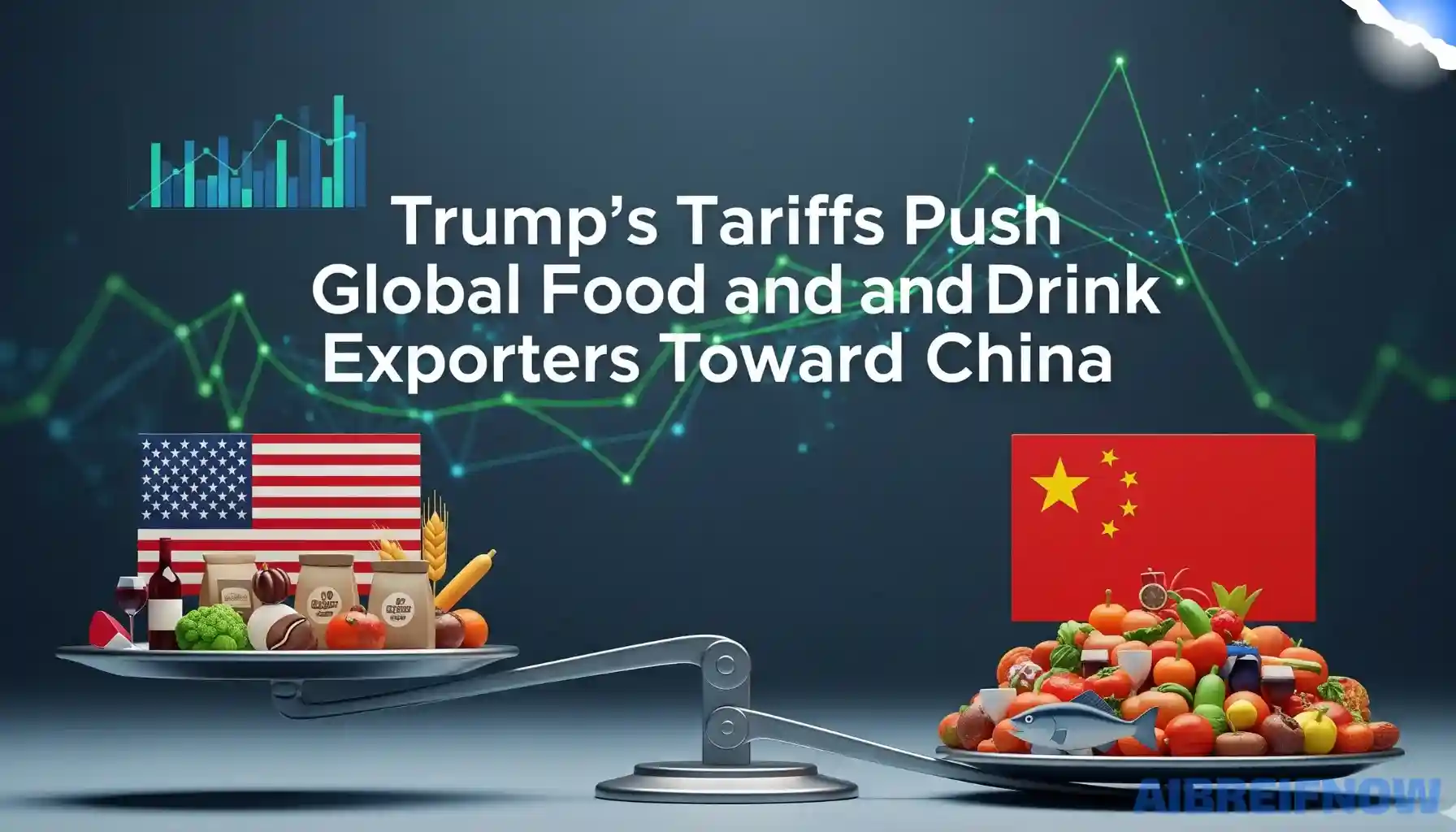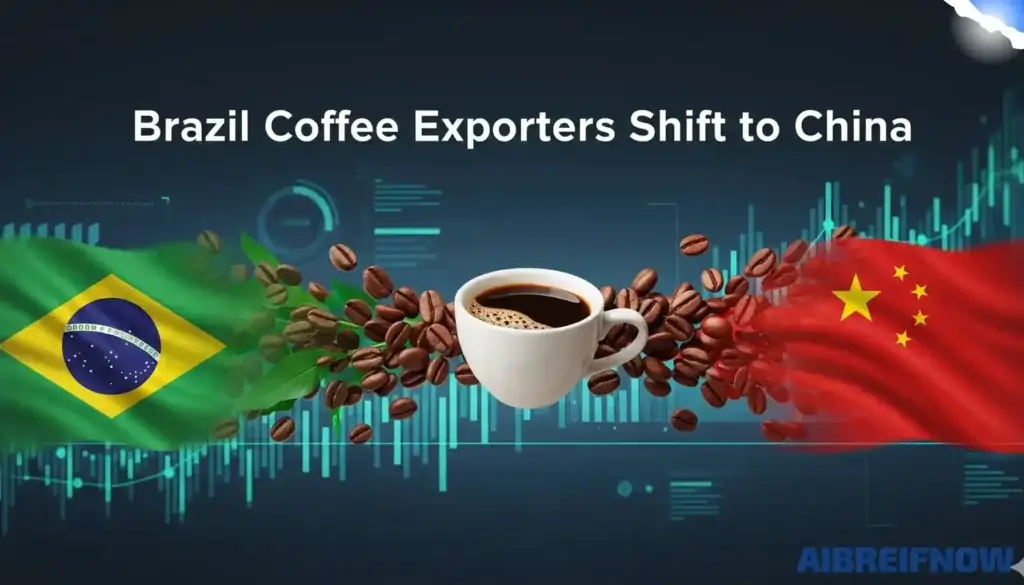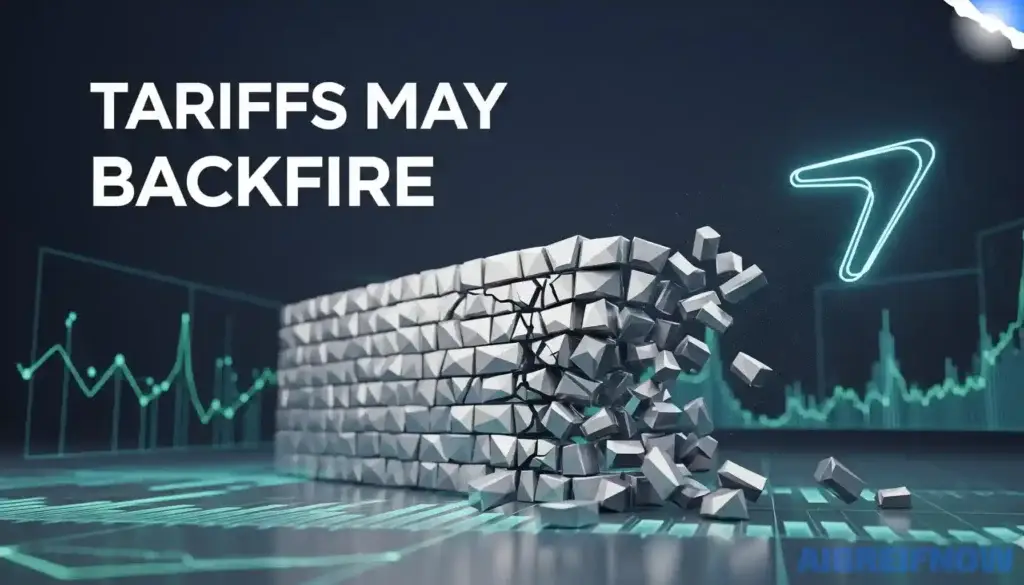
Trump’s Tariffs Are Reshaping Global Trade
Trump’s tariffs are shaking up the global economy, with many food and drink exporters turning to China as an alternative market. While the U.S. administration argues that higher import taxes will create jobs, increase revenue, and strengthen the American economy, trade experts and exporters say the opposite may be true. They warn that Trump’s tariffs risk driving exporters away from the U.S. and closer to China, while also raising prices for American consumers.
Agricultural brokers across the globe have already reported a spike in demand for trade partnerships with China, as exporters scramble to find more attractive markets. The trend is particularly clear in Brazil and India, two of the world’s biggest agricultural suppliers, who are shifting their focus eastward.

Brazil Coffee Exporters Shift to China
Brazil, the world’s largest coffee producer, has been hit with a 50% U.S. import tax, one of the steepest imposed by Washington. The result: American roasters could face higher prices, while China is quickly becoming the “shining light” for Brazilian exporters.
According to supply chain specialist Hugo Portes, tariffs that were meant to weaken Brazil’s trade power are instead pushing exporters into China’s rapidly growing café culture. Brazil currently supplies about a third of America’s coffee, but with eight million bags of beans now in limbo, exporters are pivoting fast.
More than 180 Brazilian coffee companies have already registered to export to China — an “unprecedented” shift, Portes said. The trend builds on last year’s billion-dollar deal between Brazil’s coffee producers and Luckin Coffee, a Chinese chain positioned as Starbucks’ biggest rival in Asia.
Fernanda Pizol, who oversees global sales at Brazil’s Daterra Coffee, confirmed that her farm is already preparing to sell more to China and Europe if U.S. demand continues to dip. “We’ll need to diversify,” Pizol explained. “We already have a waiting list of buyers.”
For U.S. consumers, that could mean higher coffee costs. Consultant Luke Waite estimates that a five-pound bag of beans could rise by 25%, raising the price of a cup of coffee by up to 7% in U.S. cafés.
India’s Seafood and Tea Exports Look East
India is another country caught in the tariff storm. In August, Washington imposed a 50% tariff on key Indian exports like tea and seafood, while also punishing New Delhi for purchasing Russian oil with an additional 25% levy. The Indian government labeled the move “unreasonable.”
With U.S. orders on hold, Indian exporters are now setting their sights on China, their second-largest seafood market, as well as Europe, which is working on a free trade deal with India.
Seafood Exporters Association of India secretary-general K.N. Raghavan admitted that the coming months would be tough but said his members are optimistic about China’s market potential. “It will be a difficult time,” he explained, “but producers will adapt.”
Tea exporters are also looking eastward. Mohit Agarwal of Asian Tea and Exports said that while China is the most promising new market, Indian companies could lose ground to African competitors, who offer lower-cost alternatives.
U.S. Businesses and Shoppers Feel the Pinch
While Trump’s tariffs are designed to push manufacturing back to U.S. soil, many businesses argue that the policy doesn’t reflect reality. The U.S. simply doesn’t produce enough seafood, coffee, or tea to replace imports. For instance, America’s seafood industry is heavily dependent on imports, with U.S. waters already overfished.
One major U.S. seafood association has already asked for tariff exemptions, while grocery giant Walmart has warned that it may need to raise prices soon. “We’ve managed so far,” Walmart stated, “but the rising costs will be passed on eventually.”
Industry experts say the costs will inevitably land on American shoppers. U.S. importers have little choice but to keep buying, even with the tariffs, to avoid empty shelves.
Indian seafood exporter Abuthahir Aboobakar confirmed this, saying his U.S. customers have continued placing orders despite the higher tariffs. “They’ve already put their money down, even with the 50% tariff in mind,” he explained.

China Emerging as a Global Trade Winner
The unintended consequence of Trump’s tariffs is that China is becoming a bigger winner in global trade. Exporters from Brazil, India, and other countries see China not only as a backup market but increasingly as their primary growth engine.
With café culture booming in China, seafood consumption climbing, and Europe offering new deals, exporters are finding it easier to diversify away from the U.S. The move could reduce America’s influence over global supply chains in the long run.
Meanwhile, American consumers could be left footing the bill. From a morning cup of coffee to a seafood dinner, everyday staples may soon cost more as businesses absorb tariff hikes.
Tariffs May Backfire

Trump’s tariffs were designed to protect U.S. jobs and strengthen the economy, but the global shift toward China suggests the policy may have unintended consequences. Exporters in Brazil and India are already moving business away from the U.S., while analysts warn that American shoppers will bear the brunt of rising costs.
As Portes put it, “If the tariffs are meant to weaken Brazil, in reality, they’re pushing sellers closer to China.” And if that trend continues, the U.S. may end up paying the price — not just at the cash register, but also in lost global trade influence.



